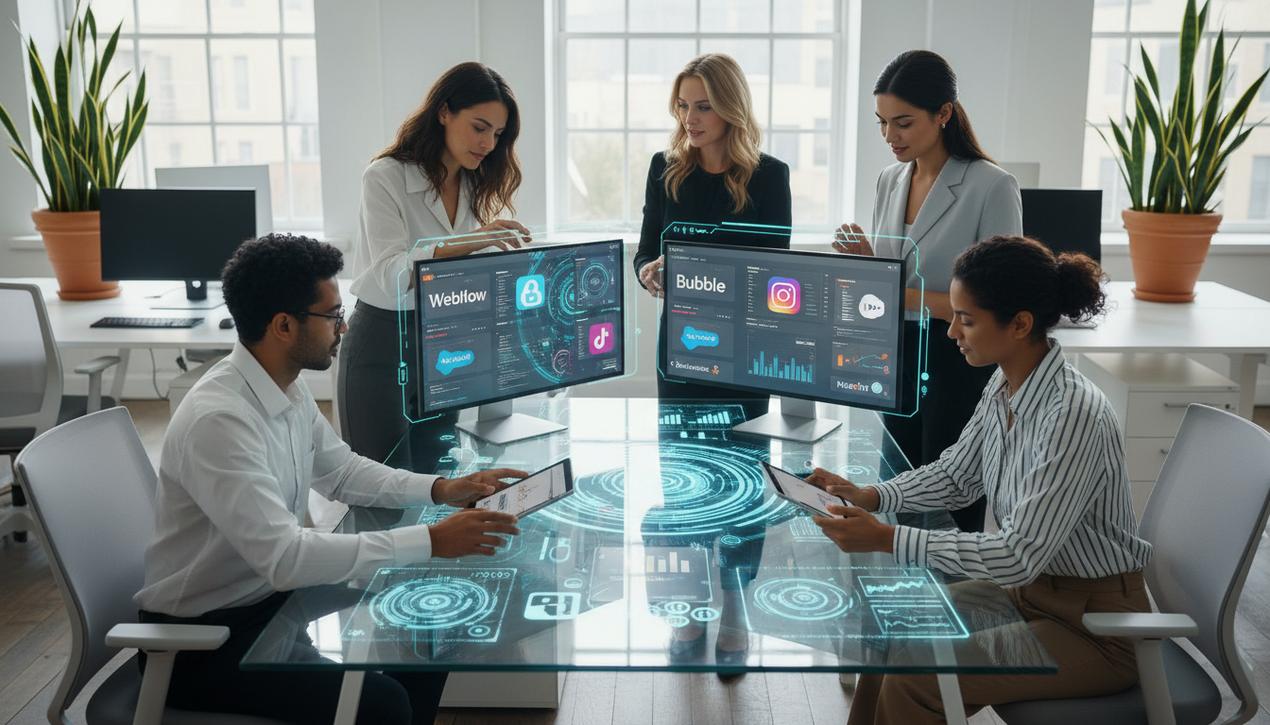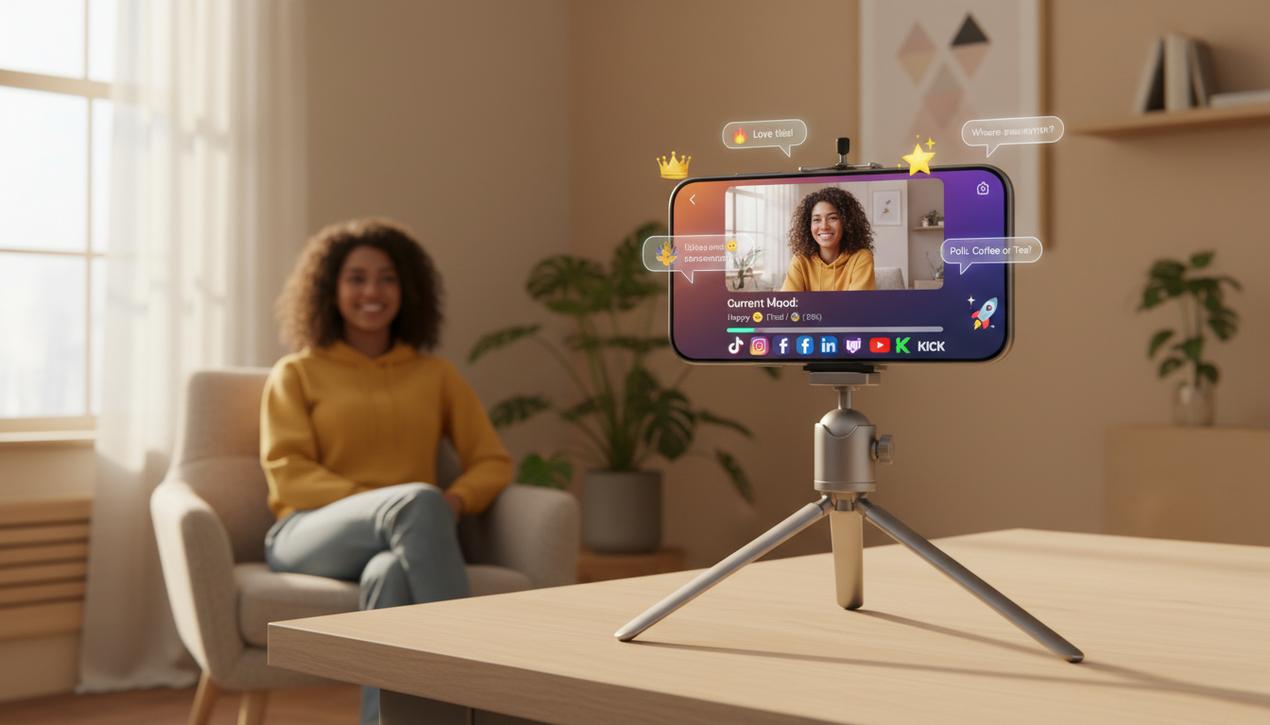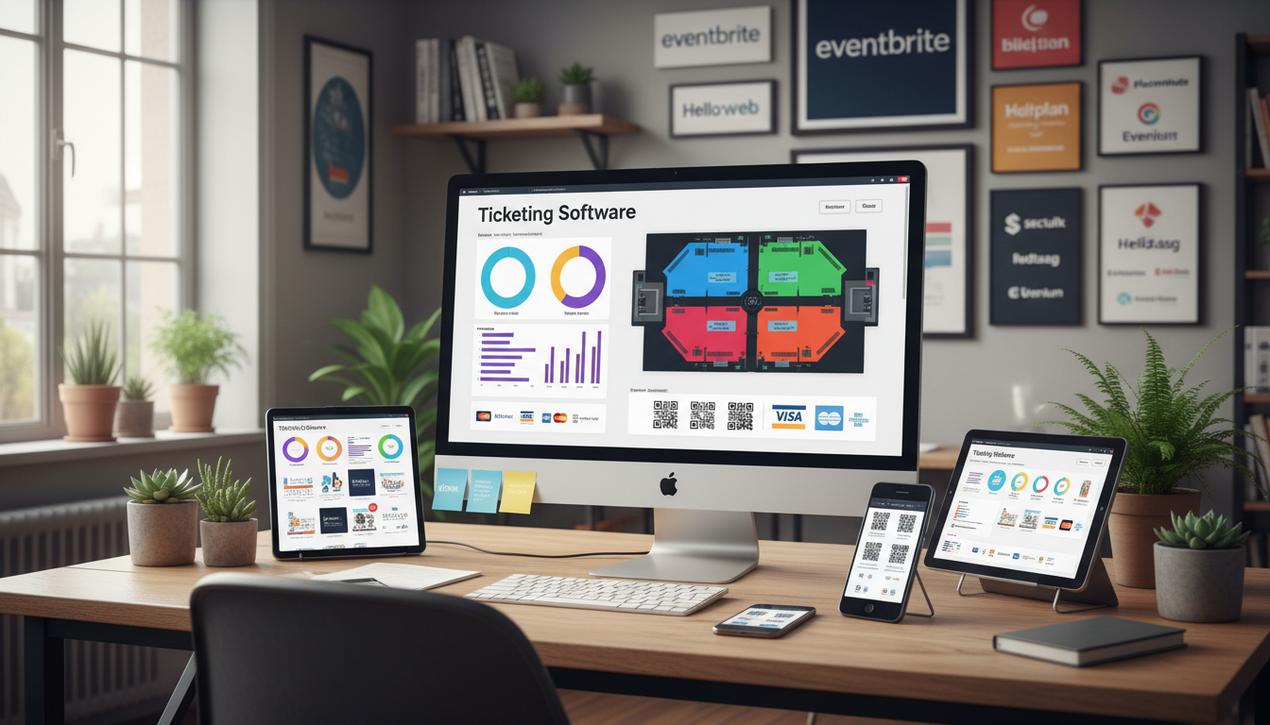Marketing Trends 2025: The Ultimate Guide to Innovate


2025 is shaping up to be a pivotal year for digital marketing. After a period defined by brand humanization and participatory engagement, we are entering an era of technological convergence where artificial intelligence is no longer a novelty but the central engine of performance. The statistics are clear: the global AI marketing market is projected to grow by over 25% annually, reaching new heights by the end of the decade. Consumers, meanwhile, are more demanding than ever, with over 75% expecting hyper-personalized experiences. Faced with these expectations and channel fragmentation, companies must urgently rethink their strategy. From conversational search disrupting traditional SEO to the rise of immersive experiential marketing, paradigms are shifting. This article delves deep into the 15 marketing trends that will define success in 2025, offering you a clear roadmap to stay competitive and build authentic connections with your audience.
The AI and Marketing Automation Revolution
Artificial intelligence is no longer just a tool; it has become the central nervous system of modern marketing strategies. In 2025, its influence extends from content personalization to advertising optimization, redefining efficiency and relevance.
1. AI-Driven Hyper-Personalization
The era of mass marketing is over. In 2025, hyper-personalization becomes the standard. Thanks to AI and machine learning, brands can analyze massive volumes of behavioral data in real time to anticipate consumer needs. This goes far beyond simply using a first name in an email. It’s about creating unique customer journeys with dynamic product recommendations, blog content tailored to individual interests, and offers that seem to intuit the customer’s desires. Companies mastering this approach see their conversion rates increase significantly.
2. Intelligent Process Automation
AI-powered marketing automation frees up teams from repetitive tasks, allowing them to focus on strategy and creativity. AI chatbots now handle complex conversations, advertising platforms automatically adjust bids and targeting for optimal ROI, and predictive analytics tools identify the most promising audience segments. In 2025, automation no longer just follows orders; it makes intelligent, data-driven decisions.
3. Next-Generation Programmatic Marketing
Programmatic marketing, which automates the purchase of ad space, is reaching a new level of sophistication. AI algorithms enable ultra-precise targeting based not only on demographics but also on context and intent. This technology optimizes campaigns in real time, ensuring the right message reaches the right person at the ideal moment, on the right channel, thereby maximizing every dollar spent.
4. AI in Influencer Marketing
Influencer marketing continues to grow, but partner selection is becoming more streamlined. In 2025, AI helps identify the most relevant influencers by analyzing not just their follower count but also the genuine engagement of their community and their alignment with brand values. Furthermore, AI-generated virtual influencers are gaining popularity, offering brands complete control over their image and messaging.
The Customer Experience Reimagined: Between Digital and Physical
The line between the physical and digital worlds is blurring. Consumers expect a consistent and seamless experience, regardless of the touchpoint. In 2025, success will depend on the ability to orchestrate memorable, omnichannel customer journeys.
5. Hybrid Marketing and Omnichannel Strategy
The purchase journey is no longer linear. A customer might discover a product on Instagram, compare it in-store, and buy it through a mobile app. Hybrid marketing aims to make this experience seamless. This involves a unified brand image, synchronized promotions between online and offline channels, and centralized data collection for a 360-degree customer view. Nearly 80% of companies plan to increase their investments in omnichannel strategies this year.
6. The Rise of Experiential Marketing
Consumers no longer just buy a product; they buy an experience. Experiential marketing creates strong emotional connections by immersing the customer in the brand’s world. This can take the form of immersive physical events, interactive pop-up stores, or virtual reality experiences. The goal is to leave a lasting impression that anchors the brand in the consumer’s mind.
7. Proactive Customer Service with AI
AI is transforming customer service from reactive to proactive. Chatbots can instantly resolve a majority of queries 24/7. But the real innovation lies in predictive analytics: AI can detect a customer’s frustration signals and alert a human agent before the problem escalates. The balance between AI’s efficiency and human empathy is the key to an exceptional customer experience in 2025.
8. The Growth of Conversational Commerce
Commerce is being integrated directly into messaging apps (WhatsApp, Messenger). Customers can chat with a brand, receive personalized advice via a chatbot or agent, and complete their purchase without ever leaving the conversation. This trend simplifies the buying journey and strengthens brand proximity.
Content and Communication: New Rules of the Game
The way consumers discover and consume information has radically changed. Content must be authentic, engaging, and present on emerging platforms that are redefining search and influence.
9. The Evolution of Search: Conversational AI and Social Search
Traditional SEO is being challenged on two fronts. On one hand, AI search engines like Perplexity or ChatGPT’s features provide direct, conversational answers, bypassing the list of blue links. On the other hand, social media platforms, especially TikTok and Instagram, are becoming search engines in their own right, particularly for Gen Z. Brands must adapt their content to be visible on both fronts: creating content that directly answers complex questions for AI and producing short, engaging video formats for social search.
10. Authenticity and Values-Based Marketing (ESG)
Consumers are seeking transparency and brands that share their values. Authenticity is no longer optional. They expect companies to take concrete action on social and environmental issues (ESG). “Greenwashing” is severely punished. Brands that communicate transparently about their actions and values build much stronger trust and loyalty.
11. Employees as the Best Brand Ambassadors
Authenticity also comes from within the team. In 2025, employee advocacy programs are essential. Employees, with their expertise and passion, are the most credible spokespeople for the company. Encouraging and equipping employees to share their daily work and knowledge on social media humanizes the brand and expands its reach organically.
12. Streaming and Long-Form Video Content
While short-form video dominates social media, a deeper trend is emerging: brand streaming. Brands like Salesforce+ and Mailchimp Presents are creating their own streaming platforms with high-value content (documentaries, series, podcasts). This format captures attention over the long term, establishes expertise, and builds a loyal audience, much like a media company would.
The New Technological Frontiers of Marketing
New technologies are democratizing creation and opening up unprecedented fields of interaction. Agile marketers who adopt them will gain a competitive edge.
13. The Democratization of No-Code Tools
No-code platforms (Webflow, Bubble, Make) allow marketing teams to create websites, applications, or complex automations without writing a single line of code. This agility reduces reliance on development teams, accelerates time-to-market for campaigns, and allows ideas to be tested at record speed. Marketing gains autonomy and responsiveness.
14. Augmented Reality (AR) and Virtual Reality (VR)
Long considered gimmicks, AR and VR are becoming accessible and powerful marketing tools. AR allows customers to virtually try on products (glasses, makeup, furniture) from their smartphones, overcoming purchasing barriers. VR creates fully immersive brand experiences. These technologies are no longer reserved for large corporations and offer innovative ways to captivate an audience.
15. The First-Party Data Strategy
With the gradual disappearance of third-party cookies, collecting and leveraging first-party data is becoming an absolute priority. In 2025, companies must implement strategies to encourage users to share their information in exchange for value (exclusive content, loyalty programs, personalized experiences). Mastering your own data is the key to surviving and thriving in the post-cookie era.
The 2025 marketing landscape is a complex and dynamic ecosystem, profoundly transformed by artificial intelligence and new consumer expectations. Innovation no longer lies in adopting a single tool or trend but in the ability to cohesively orchestrate these different strategies. By placing the customer experience at the center, focusing on authenticity, and intelligently leveraging technology, you will be able to build a resilient, relevant brand ready for the challenges of tomorrow.




